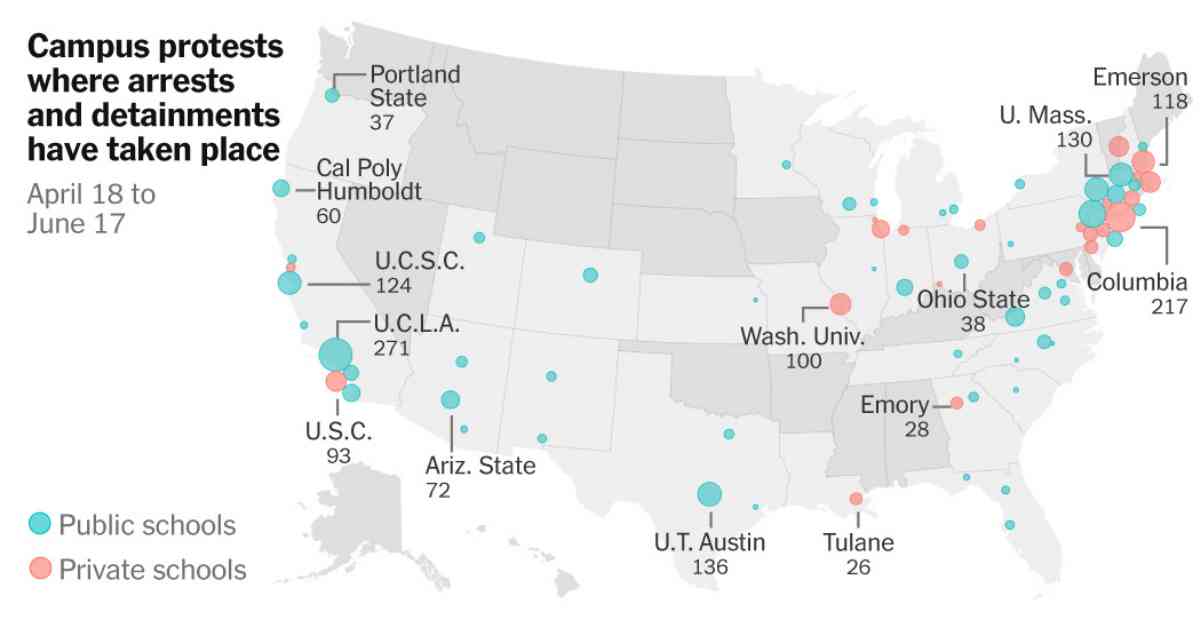Pro-Palestinian demonstrations have sparked protests and encampments on college campuses nationwide, with over 3,100 arrests and detentions since April 18. The majority of individuals were charged with trespassing or disturbing the peace, while some faced more serious charges like resisting arrest. However, in a surprising turn of events, many of these charges have been dropped in the following months.
University administrators have been grappling with how to handle these protests, with some opting to negotiate with demonstrators and others resorting to police intervention. The initial detainment of protesters at Columbia University in April set off a chain reaction of arrests at both public and private schools across the country.
Following the widespread arrests, Delia Garza, a prosecutor in Travis County, made the decision to drop criminal trespassing charges against over 100 individuals arrested at the University of Texas at Austin. Garza emphasized that such charges are typically not a priority for prosecutors, especially when they involve minor and nonviolent offenses related to peaceful protests. She also expressed confidence that jurors in her community would view the students’ actions as an exercise of their First Amendment rights.
While some universities have supported the decision to drop charges, others, like the University of Texas at Austin, have expressed disappointment. According to Mike Rosen, a university spokesman, actions that violate laws and institutional rules should have consequences, indicating a divide in opinion on how to address the situation.
The data shows a clear trend in the timeline of arrests, starting with private schools and then spreading to public institutions. This demonstrates the widespread nature of the protests and the varying responses from different types of academic institutions.
As the dust settles on these campus protests, it remains to be seen how universities will navigate the aftermath. While the dropping of charges may come as a relief to many students and activists, the debate over the appropriate response to protests on campus continues. With First Amendment rights at the forefront of the discussion, the implications of these events may have a lasting impact on how future demonstrations are handled in academic settings.





















